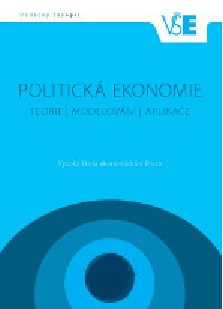Determinants of Non-maturing Deposit Pass-through Rates in Eurozone Countries
Determinants of Non-maturing Deposit Pass-through Rates in Eurozone Countries
Author(s): Milan Fičura, Jiří WitzanySubject(s): Business Economy / Management, Financial Markets, Socio-Economic Research
Published by: Vysoká škola ekonomická v Praze
Keywords: Non-maturing deposits (NMD); pass-through rate; IRRBB;
Summary/Abstract: The non-maturing deposit (NMD) pass-through rate represents a key parameter needed in the process of managing interest rate risk of the banking book (IRRBB). NMD interest rates for retail and corporate segments are usually not directly linked to market interest rates, but depend rather on the bank’s marketing strategy, market competition, liquidity, and possibly on other factors. The ratio at which banks adjust their NMD interest rates to changes in interbank market interest rates is known as the NMD pass-through rate. The goal of this paper is to analyse the variability of NMD pass-through rates in the 19 Eurozone countries and identify their possible determinants. The pass-through rates are estimated using cointegration analysis based on datasets available from the ECB Statistical Data Warehouse and the results show significant variability between countries. To analyse the determinants of pass-through rates in the Eurozone, the rates are regressed on nine aggregates of the country-level banking sector including concentration, profitability or funding, and three macroeconomic and socio-economic variables. Out of the tested predictors, the ratio of wholesale funding to liabilities was found to be the most significant predictor of retail and corporate pass-through rates, with a positive coefficient, indicating that countries where banks rely more heavily on wholesale funding exhibit higher pass-through of market interest rate changes to NMD deposit rates. Additionally, the loan-to-deposit ratio was found to have a significantly negative impact on retail pass-through rates, while the return on equity has a significantly positive impact on the corporate pass-through rates.
Journal: Politická ekonomie
- Issue Year: 71/2023
- Issue No: 3
- Page Range: 291-318
- Page Count: 28
- Language: English

